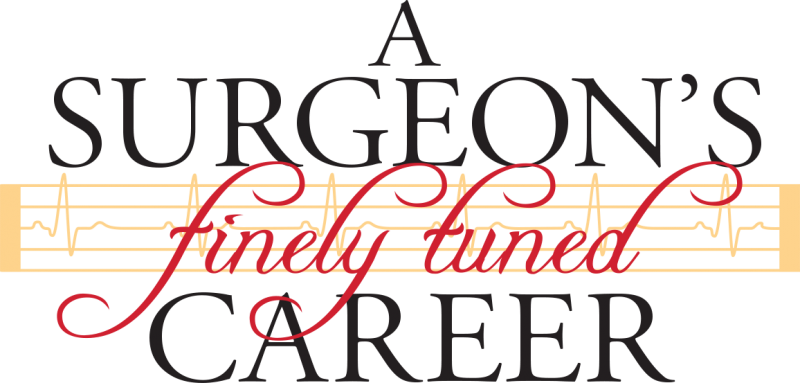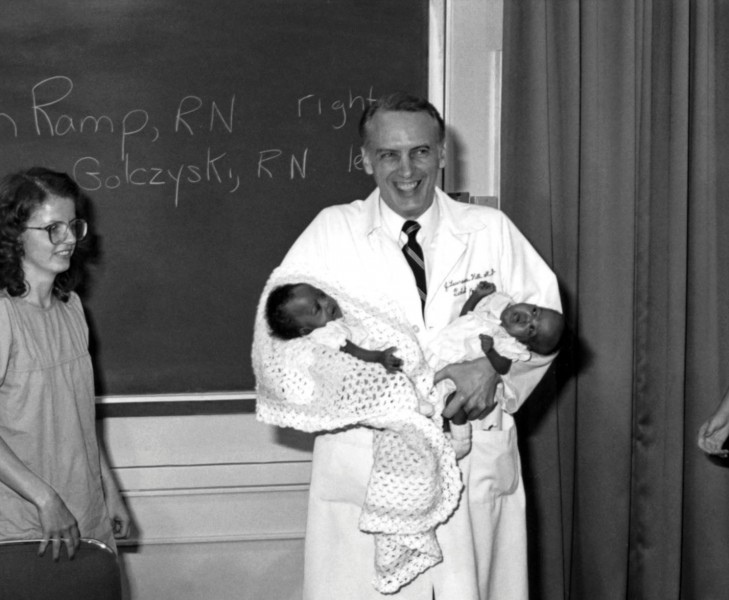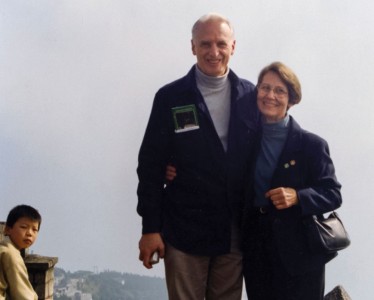
By A.L. Davies ’19
Larry Hill ’57 pauses in the middle of sharing stories from his life well-lived one Friday morning in Beeghly Library. Hill is a semiretired pediatric surgeon and professor emeritus of surgery at both the University of Maryland and Johns Hopkins University. While at Maryland in 1986, he led a 24-person team to separate conjoined twins. During the Vietnam War, he oversaw a surgical unit.
But at this moment, he’s distracted by a T-shirt. He shouts to the student emblazoned with Phi Delta Theta. “Hey, you old Phi!”
Hill’s gravelly greeting, steeped in the training of an operatic baritone, rumbles across the library’s first floor. He’s greeted with a handshake and invitation to the Phi Delt alumni banquet that Homecoming weekend. Hill quickly assures the brother he’ll be in attendance – of that, he’s certain.

Uncertainty has never been an issue for Hill, whose path ranges from Alaska to Vietnam to Johannesburg, South Africa, and to Baltimore, Maryland. “Nothing was planned. It was just step by step,” he says.
Hill credits his mother with starting him on his academic path. An opera singer, she taught him to sing at the age of 3. When he was in third grade, his teacher heard him sing and called Dr. Herbert Huffman, director of the prestigious Columbus Boychoir School, to arrange an audition. Hill was accepted and began his first of many traveling adventures. (The school moved to Princeton, New Jersey, in 1950 and became the American Boychoir School before closing last year due to lack of funding.)
“Half of the academic year we were traveling around the country on concert tours and studying on a bus,” Hill says. “It was an incredible experience. We traveled all over the U.S. and met people, learning good manners as well as how to concentrate and study.”
Hill took a gap year after high school, hitchhiking from his hometown of Columbus to Alaska. Eventually, he decided to pursue a degree. “I was constantly debating whether I should go to Juilliard for music or to MIT for engineering,” he says. But then he learned about OWU.
“I got home from the swimming pool one afternoon, dripping wet, to find a gentleman sitting in the front room who’d been waiting for me for two hours.” Hill was mystified, and the visitor’s first words didn’t help much. “He said to me, ‘You don’t know me, but I know you,’ ” Hill recalls with a laugh.
The man was the director of admissions at Ohio Wesleyan and had heard Hill perform as a soloist in the high school Ohio State Choir and as second chair violinist in the high school state orchestra. He had arranged a deal with MIT: Hill could go to OWU for three years to earn his bachelor’s and MIT for two years to earn a degree in engineering, with a full scholarship. Within two weeks of arriving at OWU, Hill rushed Phi Delta Theta fraternity – which, he proudly notes, won the fraternity chorus spring contest every year because many of the brothers were fellow music students.
Although Hill enjoyed music, especially the a cappella choir with professor of music Rex Keller, he found himself falling in love with his one elective class in his junior year – zoology. “The professors in that class were fabulous,” Hill says. “We studied everything from single-cell organisms up to the ‘tree of life’ and dissected everything from earthworms to cats to sharks.”
When those tiny babies I operated on grow up and learn who their surgeon was, I get invitations to graduations, weddings, and other special occasions.
Hill switched course, abandoning his MIT plans, and earned the credits to graduate pre-med with a minor in music. He then enrolled in medical school at Ohio State University.
While a freshman at OWU, Hill met, and later married, Charlotte Patterson Hill ’57. The couple raised three children to young adulthood; their older son was killed in 2017 in a natural disaster while pursuing his special interests in the Canadian Rockies. Their grandson Zak Hill is a junior at OWU.
In Larry Hill’s general surgery residency, he discovered he particularly enjoyed the developing fields of pediatric and cardiothoracic surgery. In 1966, watching his fellow residents head to war, Hill decided to enlist. He was sent to serve as commander of a surgical unit in Long Binh, Vietnam. His Army surgical team eventually moved up near Da Nang to support the U.S. Marines. He worked with helicopter pilots, landing in the middle of dense jungle firefights and sometimes disobeying a general’s orders to try to save as many injured soldiers as possible.
The moment he returned to the United States, Hill found an airport pay phone and called his OSU mentor, Dr. William Clatworthy, to resume his training as a pediatric surgeon. Hill later went on to the University of Chicago, helping the university expand its pediatric surgery program and connecting the school with the Cook County Hospital. He was recruited by the Johns Hopkins Medical Center in Baltimore to form a connection with the nearby University of Maryland Medical Center for a pediatric surgery training unit.
“Dr. George Zuidema, chairman of surgery at Hopkins, called and asked me to interview,” Hill says. Upon observing the lack of a pediatric surgical unit and personnel in Maryland’s hospital, Hill knew what his calling in Baltimore was – and what his next step would be.

“I felt as though I was back in Vietnam. There was nothing at the Maryland Medical Center those babies needed for their operations,” he says. “So I came to Baltimore to be a professor of pediatric surgery and began organizing a surgical unit combining the two local medical centers.”
Hill elevated the predicted 30 annual pediatric cases at the University of Maryland Medical Center to 150 in his first year. “Together, they do almost 3,000 cases a year now,” Hill says.
In just one of those, Hill led a team of doctors in the groundbreaking 1986 operation at Maryland to separate conjoined twins. The successful 12-hour surgery involved a 24-member team and was the first time twins were separated at the Medical Center. Ciera and Tiera Bennett were born face to face, joined from mid-chest to abdomen. The girls shared a chest wall, diaphragm, heart, and liver before they were successfully separated at 2 months old. They both went on to make the honor roll in high school, and kept in touch with Hill.
 In recognition of his significant contributions to medicine, Hill was awarded the Distinguished Achievement Citation by Ohio Wesleyan University in 2017.
In recognition of his significant contributions to medicine, Hill was awarded the Distinguished Achievement Citation by Ohio Wesleyan University in 2017.
Hill values the connections he’s made throughout his career and views staying in touch with his patients as the biggest reward. “When those tiny babies I operated on grow up and learn who their surgeon was, I get invitations to graduations, weddings, and other special occasions,” he says.
“I feel so blessed to be a pediatric surgeon,” he says. “It’s a pleasure to see these children grow up and turn into remarkable and successful young persons.”
Sometimes he even gets asked to sing or play the violin at their weddings, keeping the musical skills that brought him to OWU and on to his life in medicine as sharp as a surgeon’s scalpel.
